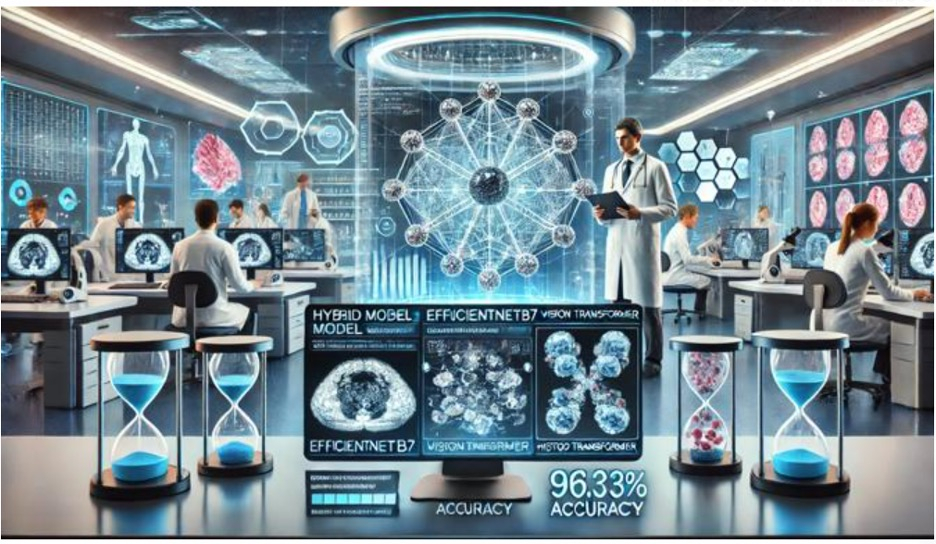Bio-MEMS (biomedical microelectromechanical systems) technologies, such as piezoelectric actuators and micropumps, have improved patient outcomes by addressing medical challenges like Type 1 Diabetes and improving drug delivery systems. As these innovations evolve, they hold potential for transforming future healthcare, from wearable diagnostics to personalized medicine.
Central to these innovations is Dr. Mohith Santhya, an expert in medical technology with specialization in infusion devices, MEMS microfluidics, and micropumps. His contributions are driving advancements in precision drug delivery and medical diagnostics, reshaping the future of healthcare.
Dr. Santhya is directly involved in refining medical technologies, specifically devices like piezoelectric actuators and micropumps, to ensure they meet healthcare standards. During his tenure as a senior design engineer at Becton Dickinson (BD), he developed product verification protocols, ensuring the reliability of medical devices through careful testing and statistical analysis. For example, he contributed to refining components of infusion devices used in drug delivery systems, identifying potential design variances using Six Sigma methodologies.
Now, Dr. Santhya continues to develop, test, and validate MEMS-based devices, which combine mechanical and electrical components to perform precise tasks, such as drug delivery or physiological monitoring. His work supports the development of bio-MEMS products that meet regulatory requirements and enhance medical treatments.
Precision in Motion
Precision in medical devices is integral to enforcing accurate treatment and enhancing patient safety. Dr. Santhya’s extensive expertise in piezoelectric actuators and micropump technology is propelling groundbreaking advancements in the miniaturization of micropump systems. His work particularly focuses on addressing global health challenges through precision dosing solutions for the treatment of autoimmune disorders, aggressive cancers, addiction, and pain management.
Beyond drug delivery, Dr. Santhya’s contributions extend to microsurgical tools, precise tissue manipulation, robotic surgery systems, minimally invasive surgery, where his piezo hydraulic actuator enables superior control and precision. Dr. Santhya’s piezo-flexural-hydraulic actuator delivers an impressive 77-fold increase in displacement compared to traditional piezo actuators, offering 100x greater displacement than typical industry standards. It maintains exceptional precision with only a 2.23% reduction in performance at higher frequencies and consistently low uncertainty (0.016-0.036%), ensuring high stability and accuracy.
The integration of energy-harvesting piezoelectric nanocomposites developed by Dr. Santhya enhances the self-sustainability of the medical devices. The PVDF/ZrO2/ZnO nanocomposite energy harvester demonstrates an 8x improvement in voltage output (3.2V) compared to standard PVDF systems, positioning it in the top 15% of energy harvesters in the market. It also achieves a 40% increase in crystallinity, significantly enhancing the piezoelectric response and overall energy conversion efficiency.
Dr. Santhya’s innovative micropump design, featuring a disposable chamber, demonstrates significant advancements over current industry standards. The system delivers flow rates 20-50% higher than conventional commercial micropumps while reducing back pressure by 15-30%. Moreover, the micropump improves dose accuracy by an impressive 20-30%, making it exceptionally well-suited for precise drug delivery applications. Dr. Santhya’s valveless micropumps offer significant potential for integration with point-of-care diagnostics by enabling more precise fluid delivery in diagnostic assays and infusion systems. Drawing on over five years of expertise in micropump technology, Dr. Santhya is now spearheading advancements in BioMEMS delivery systems, poised to transform the healthcare technology industry and influence global healthcare practices.
Small Devices, Big Impact
Dr. Santhya’s pioneering research has laid the foundation for significant advancements in compact medical devices, particularly in high-precision drug delivery systems. His work on micropumps and piezoelectric actuators has demonstrated that small devices can deliver impactful improvements in patient care. His micropump technology has achieved a 30% increase in flow consistency across various fluid viscosities while maintaining dose accuracy within ±2%. This ensures precise delivery of medications like insulin and blood plasma-mimicking solutions, critical for managing chronic conditions. Additionally, his advancements in device reliability have led to a 35% improvement in overall performance, reducing dosing errors by 20% and enhancing patient safety. The compact nature of these systems, offering 50 times higher volumetric efficiency with a 25% smaller footprint, is key to their integration into portable and wearable drug delivery solutions. This advancement addresses the increasing demand for personalized healthcare.
As global health trends drive the need for more accurate and reliable drug delivery systems, particularly for managing chronic diseases like diabetes, Dr. Santhya’s research has positioned him at the forefront of this effort. His innovative micropumps maintain flow rates within the 5-10 mL/min range, outperforming current industry standards by 15-20%, especially with high-viscosity fluids. These advancements provide a solid platform for the development of next-generation BioMEMS devices, capable of delivering high-impact results without compromising on size or efficiency. With a focus on miniaturization and high precision, Dr. Santhya’s contributions will pave the way for more accessible, compact, and effective medical devices that are set to meet the evolving needs of global healthcare.
Setting New Industry Standards
Dr. Santhya’s work in micropump and hybrid piezo-flexural-hydraulic actuator technologies has laid the foundation for significant advancements in the BioMEMS domain. Previously, his innovations reduced dosing errors by 20% in various drug delivery systems and increased efficiency by 35% in applications such as microsurgical tools and rehabilitation devices. Now, Dr. Santhya is focused on transferring these technologies to the BioMEMS field, where his efforts target a 20% reduction in manufacturing costs through advanced techniques.
These developments aim to facilitate the implementation of these state-of-the-art technologies across a wider range of medical devices. As these innovations progress, they are expected to drive a 25% increase in the adoption of BioMEMS and energy-harvesting technologies by 2030, contributing to a more sustainable and effective global healthcare system.
Beyond Traditional Medical Devices
Dr. Santhya’s pioneering advancements in piezoelectric actuators and micropump technologies extend well beyond traditional medical devices, positioning them as key components in next-generation healthcare solutions. His research has demonstrated a notable 30% increase in efficiency for electronic cooling systems and energy-harvesting devices, with potential applications in powering self-sustaining medical devices. This is particularly crucial in remote or under-resourced areas where reliable access to power sources is often lacking.
Furthermore, Dr Santhya’s innovations in micropump technology hold promise for transformative diagnostic applications, enhancing speed and accuracy by 25% in fluid delivery systems crucial for laboratories and point-of-care diagnostic tools. Such improvements facilitate rapid diagnostics, which can be vital in emergency settings, allowing for quicker patient interventions.
Shaping the Future of Healthcare
Producing advanced medical technologies such as BioMEMS devices requires significant investment. Dr. Santhya is actively addressing these challenges through his expertise in developing state-of-the-art medical devices focused on improved efficiency, compact size, and cost reduction. His work in optimizing the design and manufacturing processes is projected to potentially reduce production costs by up to 20% as the R&D phase progresses. By leveraging advanced manufacturing techniques, he aims to minimize material waste and improve manufacturing efficiency, targeting reductions of up to 30% in manufacturing time.
Additionally, his commitment to enhancing product development processes is anticipated to streamline regulatory approval timelines by approximately 20%. This strategic approach not only drives the deliverables towards achieving measurable improvements but also facilitates smoother market integration while maintaining rigorous quality standards. Dr. Santhya’s contributions are instrumental in paving the way for the successful launch of high-performance BioMEMS devices that will meet the evolving needs of global healthcare.







